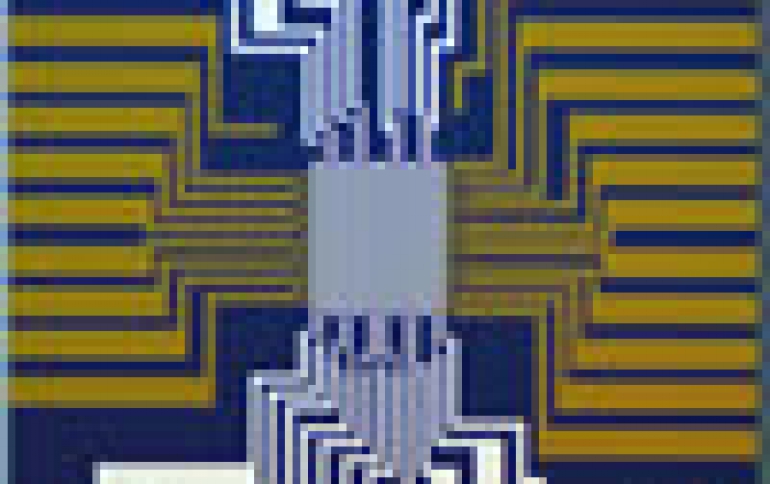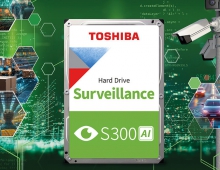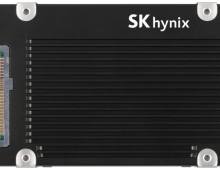
Hynix and Toshiba To Develop MRAM
Hynix Semiconductor and Toshiba have agreed to strategic collaboration in the joint development of Spin-Transfer Torque Magnetoresistance Random Access Memory (MRAM), a fast emerging next generation memory device.
Once technology development is successfully completed, the companies intend to
cooperate in manufacturing MRAM products in a production joint venture. Hynix and
Toshiba have also extended their patent cross licensing and product supply
agreements.
Toshiba recognizes MRAM as an important next-generation memory technology with the potential to sustain future growth in its semiconductor business. Hynix has a cutting-edge memory technology, most notably in manufacturing process optimization and cost competitiveness.
MRAM uses magnetic properties to store data. Unlike DRAM, which distinguishes between 0 and 1 by passing an electron through a capacitor, data in MRAM can be determined by measuring the difference in resistance from magnetization on a magnetic tunnel junction (MTJ). Data is written and saved by reorienting the magnetization of a thin magnetic layer in a tunnel magnetoresistance (TMR) element using a spin-polarized current.
The non-volatile, power efficient memory, operates at ultra-high speed.
Applications requiring high-density memory are expected to take advantages of MRAM, and major initial applications are expected in the mobile market, which notably demands low power consumption.
Developing a new technology is always prone to risk. One reason for merging the necessary resources and expertise from Hynix and Toshiba is to minimize risk and to accelerate the pace of MRAM commercialization.
"MRAM is a rare gem full of exciting properties, like ultra high-speed, low power consumption, and high capacity, and it will play the role of key factor in driving advances in memories. It will also be a perfect fit for growing consumer demand in more sophisticated smart phones. MRAM is our next growth platform," said Oh Chul Kwon, Hynix's CEO.
"We believe that MRAM has huge potential as highly scalable non-volatile RAM," said Kiyoshi Kobayashi, Corporate Senior Vice President of Toshiba Corporation, and President and CEO of Toshiba's Semiconductor and Storage Products Company. "We will strongly promote initiatives in integration of storage solutions including MRAM, NAND, and HDD. The MRAM joint development program with Hynix is one of the key steps to support our efforts."
Toshiba recognizes MRAM as an important next-generation memory technology with the potential to sustain future growth in its semiconductor business. Hynix has a cutting-edge memory technology, most notably in manufacturing process optimization and cost competitiveness.
MRAM uses magnetic properties to store data. Unlike DRAM, which distinguishes between 0 and 1 by passing an electron through a capacitor, data in MRAM can be determined by measuring the difference in resistance from magnetization on a magnetic tunnel junction (MTJ). Data is written and saved by reorienting the magnetization of a thin magnetic layer in a tunnel magnetoresistance (TMR) element using a spin-polarized current.
The non-volatile, power efficient memory, operates at ultra-high speed.
Applications requiring high-density memory are expected to take advantages of MRAM, and major initial applications are expected in the mobile market, which notably demands low power consumption.
Developing a new technology is always prone to risk. One reason for merging the necessary resources and expertise from Hynix and Toshiba is to minimize risk and to accelerate the pace of MRAM commercialization.
"MRAM is a rare gem full of exciting properties, like ultra high-speed, low power consumption, and high capacity, and it will play the role of key factor in driving advances in memories. It will also be a perfect fit for growing consumer demand in more sophisticated smart phones. MRAM is our next growth platform," said Oh Chul Kwon, Hynix's CEO.
"We believe that MRAM has huge potential as highly scalable non-volatile RAM," said Kiyoshi Kobayashi, Corporate Senior Vice President of Toshiba Corporation, and President and CEO of Toshiba's Semiconductor and Storage Products Company. "We will strongly promote initiatives in integration of storage solutions including MRAM, NAND, and HDD. The MRAM joint development program with Hynix is one of the key steps to support our efforts."





















